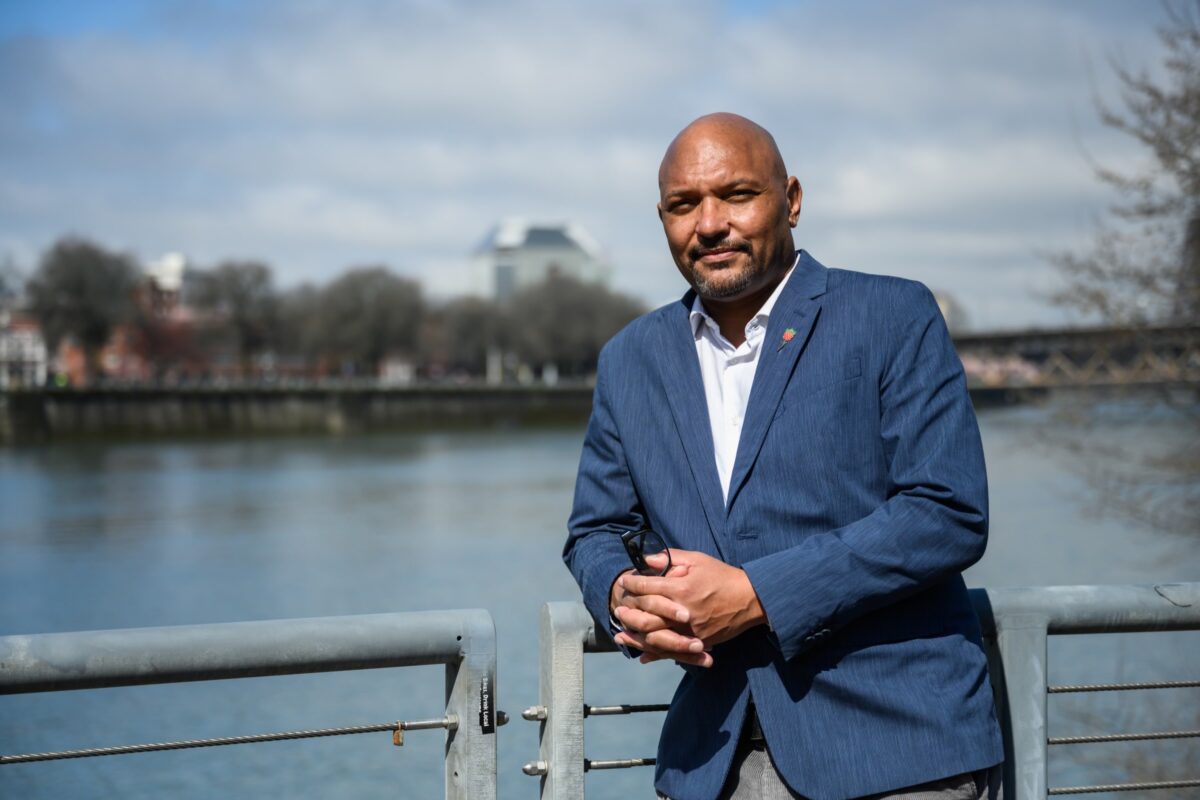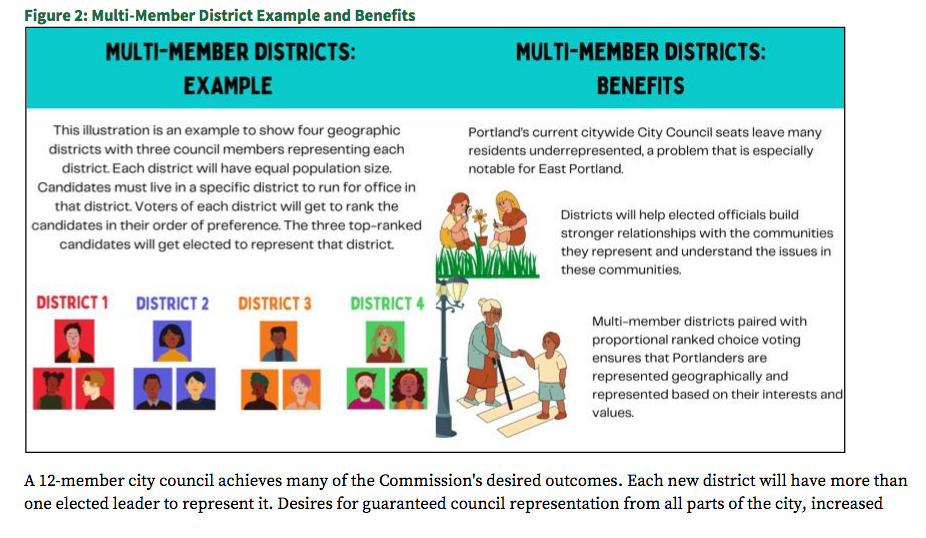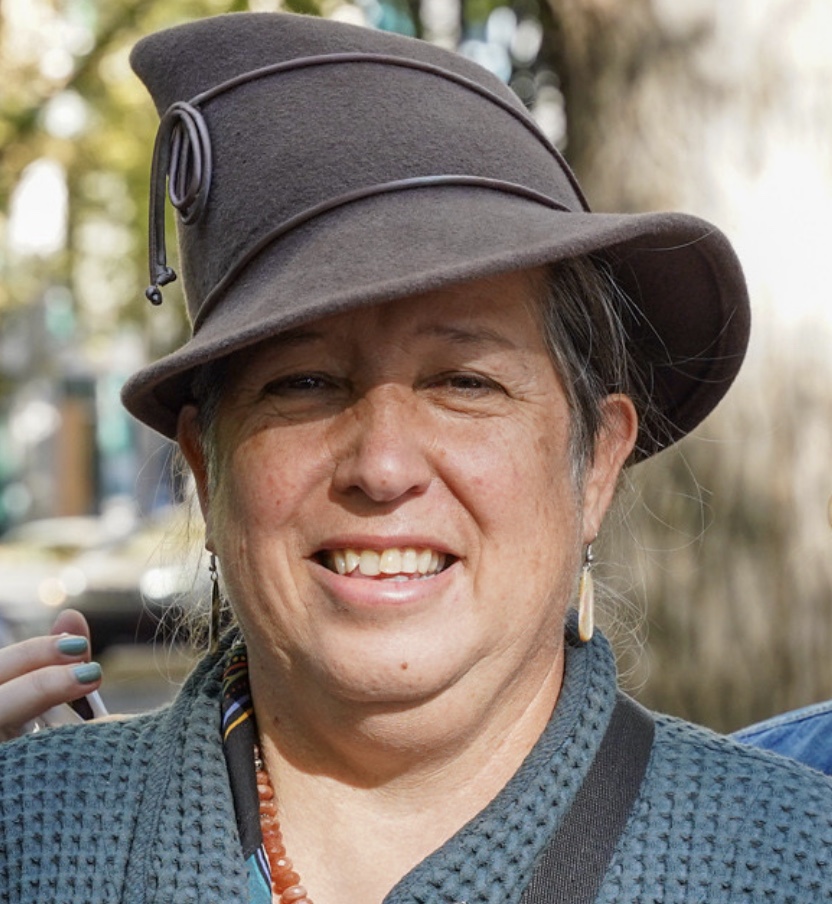 Source: Friends of Mingus Mapps
Source: Friends of Mingus MappsMingus Mapps drew the charter reform battle lines more clearly yesterday when the City Commissioner announced that he would be crafting an alternative to the charter reform proposal put forward last month by the city appointed Charter Review Commission. In an email to supporters Tuesday, Mapps laid out a path to challenging the commission’s charter reform proposal.
It is a deft political move by Mapps on an issue that is a snoozer for those who do not follow local politics closely. The city charter is our “constitution,” it is the document that describes how Portland’s government is organized and how we elect the city council. As such, it touches every issue facing the city today, from policing to housing affordability to transportation. It affects how the Portland Bureau of Transportation (PBOT) is run and how it sets its priorities. If you have a gripe — and as a comment moderator I know a lot of BikePortland readers do — the charter reform debate should be important to you.
Mapps made charter reform a a central issue in his 2020 city council campaign, and the former political science professor has been outspoken about the need for reform saying repeatedly during his campaign that, “Portlanders deserve a modern city council.”
As BikePortland recently reported, some of the changes which the Charter Review Commission has put forward for the November ballot are broadly supported — including by Mapps: elections by district, a larger city council, and the replacement of Portland’s current Commissioner form of government with a City Manager system.
But their proposed system of voting, ranked choice voting with multi-member districts, is controversial. This would divide the city into four districts with voters in each district selecting three council representatives using a ranked-choice method. The system allows voters to rank their preference for multiple candidates, and its supporters point to research that shows that it approximates proportionality by better securing representation for non-majority viewpoints.
 Heat map showing People of Color (POC) voting age population (VAP) for citizens and non-citizens from the MGGG Redistricting Lab’s analysis of Portland City Council voting.
Heat map showing People of Color (POC) voting age population (VAP) for citizens and non-citizens from the MGGG Redistricting Lab’s analysis of Portland City Council voting.
This is one of the elements of the current proposal with which Mapps does not agree, calling it “an untested experiment not used by any other city in the United States.”
Mapps proposes to put forward a draft alternative proposal in October, a month before the election, and commits to “leading a City Council effort to submit this as a referendum in early Spring 2023” if the voters were to reject the Charter Commission proposal in November. Prior to that, Mapps will be polling the electorate, organizing focus groups and hosting forums and debates on alternatives to the current proposal through the Ulyssess PAC, a political action committee he formed last year to support charter reform.
 Source: Charter Review Commission materials.
Source: Charter Review Commission materials.
 Charter Commissioner Candace Avalos
Charter Commissioner Candace Avalos
His “draft alternative proposal” will give voters who might be skittish about the ranked-voting, multi-member district aspect of reform the possibility of still enacting the reform’s more broadly popular elements. The job of the Charter Commission becomes making voters comfortable with a more complicated algorithm for tabulating votes, and will involve outreach and education.
In a recent interview published by Rose City Reform, Charter Review Commissioner Candace Avalos talked about the reasoning behind the commission’s proposals, saying
“We thought it was important to present a vision to voters. This is a big bold change, and we want voters to buy into this with us. For it to work as we intended, you’ve got to accept the whole vision. You can’t piecemeal it. “
Mapps’s task is simpler, he just needs to stoke fear and uncertainty and position his draft as a more moderate alternative.
Things are heating up, and it’s not just the weather. Stayed tuned as BikePortland follows this issue.

Lisa Caballero has lived in SW Portland for 20 years. She is on the Transportation Committee of her neighborhood association, the Southwest Hills Residential League (SWHRL) and can be reached at This email address is being protected from spambots. You need JavaScript enabled to view it..

